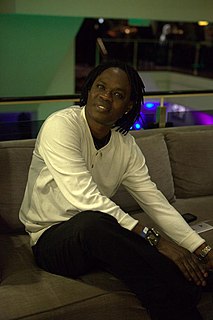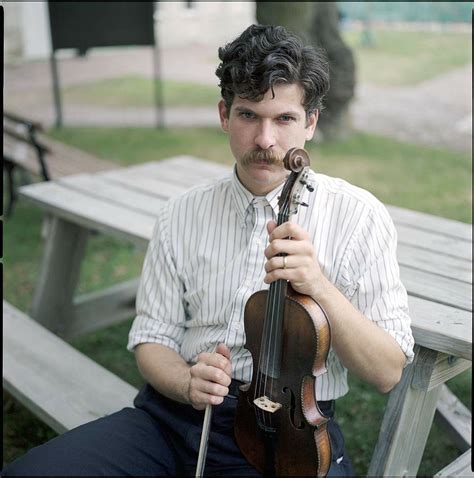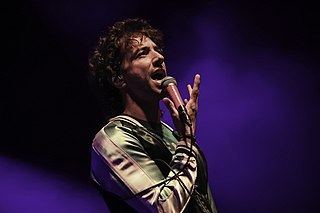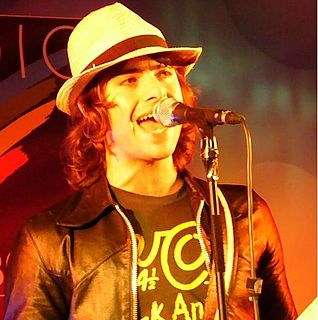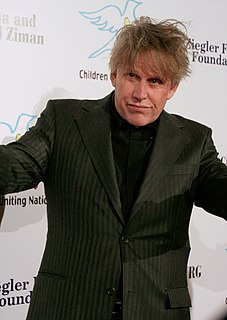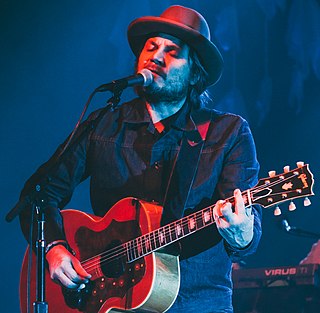A Quote by Marvin Minsky
We must see that music theory is not only about music, but about how people process it. To understand any art, we must look below its surface into the psychological details of its creation and absorption.
Quote Topics
Related Quotes
Many musicians are fabulously skilled at playing the black dots on the printed page, but mystified by how the dots got there in the first place and apprehensive of playing without dots. Music theory does not help here; it teaches rules of the grammar, but not what to say. When people ask me how to improvise, only a little of what I can say is about music. The real story is about spontaneous expression, and it is therefore a spiritual and a psychological story rather than a story about the technique of one art form or another.
I think any information about any type of art form, it's always the right time. But since the last one, I could see there were many things about the culture of DJing that we don't really talk about. We don't really look at how the music is made, how it's conceptualized, how it's put together. We talk about the equipment and the software, but we don't talk about the reasons why we put the music together in the first place.
I did not like that name "world music" in the beginning. I think that African music must get more respect than to be put in a ghetto like that. We have something to give to others. When you look to how African music is built, when you understand this kind of music, you can understand that a lot of all this modern music that you are hearing in the world has similarities to African music. It's like the origin of a lot of kinds of music.
Not understanding the process of a spontaneously-ordered economy goes hand-in-hand with not understanding the creation of resources and wealth. And when a person does not understand the creation of resources and wealth, the only intellectual alternative is to believe that increasing wealth must be at the cost of someone else. This belief that our good fortune must be an exploitation of others may be the taproot of false prophecy about doom that our evil ways must bring upon us.
My only advice as an experience older singer is about singing, it isn't about music. To have a career in music is a completely different question and leads to other kinds of advice and other kind of experts. All you can do is someone planted in my mind very early on, this wonderful truism called, "Fortune favors the prepared mind." Be passionate about being a musician. There is no limit to how hard you must work and how detailed you must be in every facet of what you do, either as a singer, as a musician, or as a person.
I just really care about what people see. I want them to know that I'm working hard for this. The artists that I look up to like, you know, Michael, Prince, James Brown. You watch them and you understand that they're paying attention to the details of their art. And they care so much about what they're wearing, about how they're moving, about how they're making the audience feel. They're not phoning it in. They're going up there to murder anybody that performs after them or performs before them. That's what I've watched my whole life and admired.
I saw lots of music devices. I loved playing with music devices. And like most of the world, I thought of a music device as a music device. Steve Jobs tends to look beyond that, and he doesn't see a music device as having any importance at all - how fast it is, how many songs it can hold, and all that - he sees music itself to a person as a being the important thing.
A lot of people seem to think that art or photography is about the way things look, or the surface of things. That's not what it's about for me. It's really about relationships and feelings...it's really hard for me to do commercial work because people kind of want me to do a Nan Goldin. They don't understand that it's not about a style or a look or a setup. It's about emotional obsession and empathy.
To spend any time with someone who is among the top five film composers of the last 50 years is pure gold dust. I mean, not necessarily stylistically, because everyone is different in what their music sounds like, but the approach and how to look at a film, how to think about a film, how to decide what you want to do, how to think about characters, how to think about art, how to think about narrative, how to liaise with producers, how to liaise with directors.



